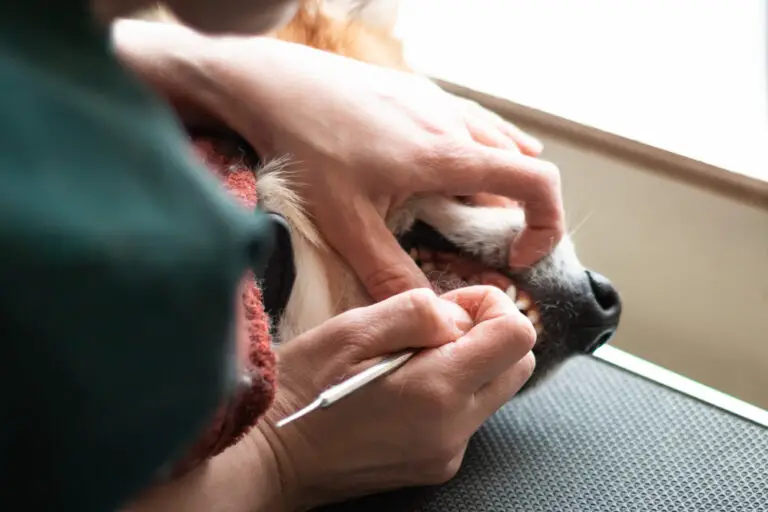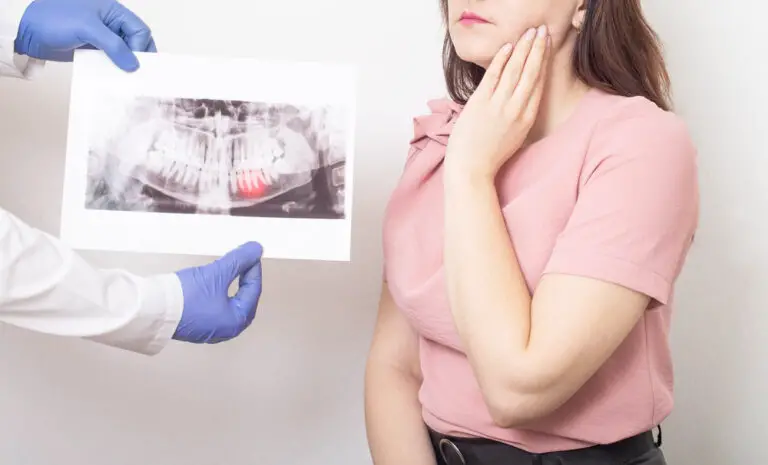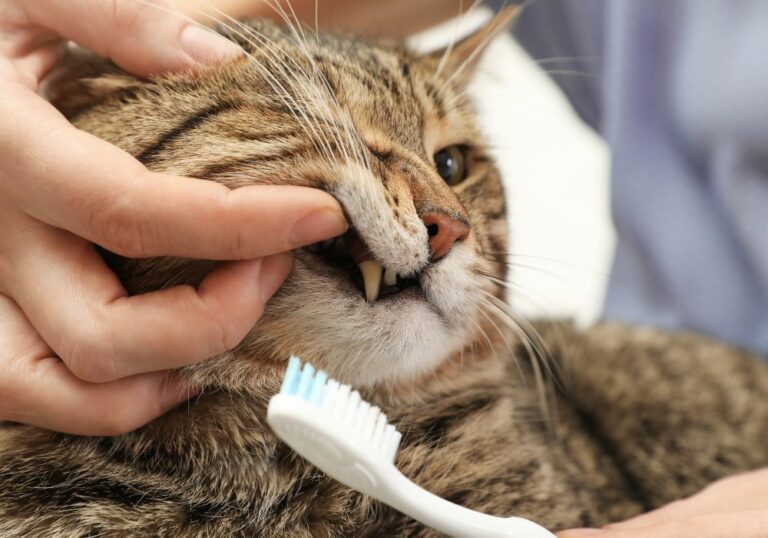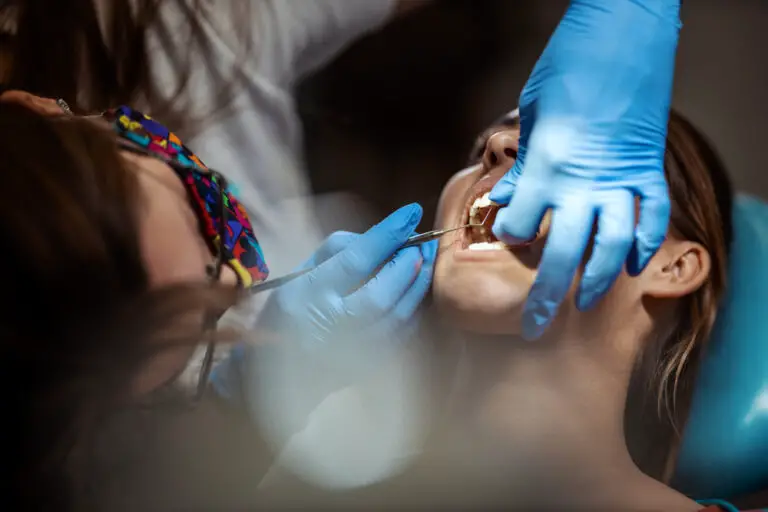Brushing our teeth is a daily habit that most of us think little about beyond basic hygiene and preventing cavities. But the simple act of brushing our teeth can have a profound positive impact on how we feel physically and emotionally. The ritual provides both oral health benefits and boosts our psychological well-being in multiple ways.
Physical Oral Health Benefits of Brushing
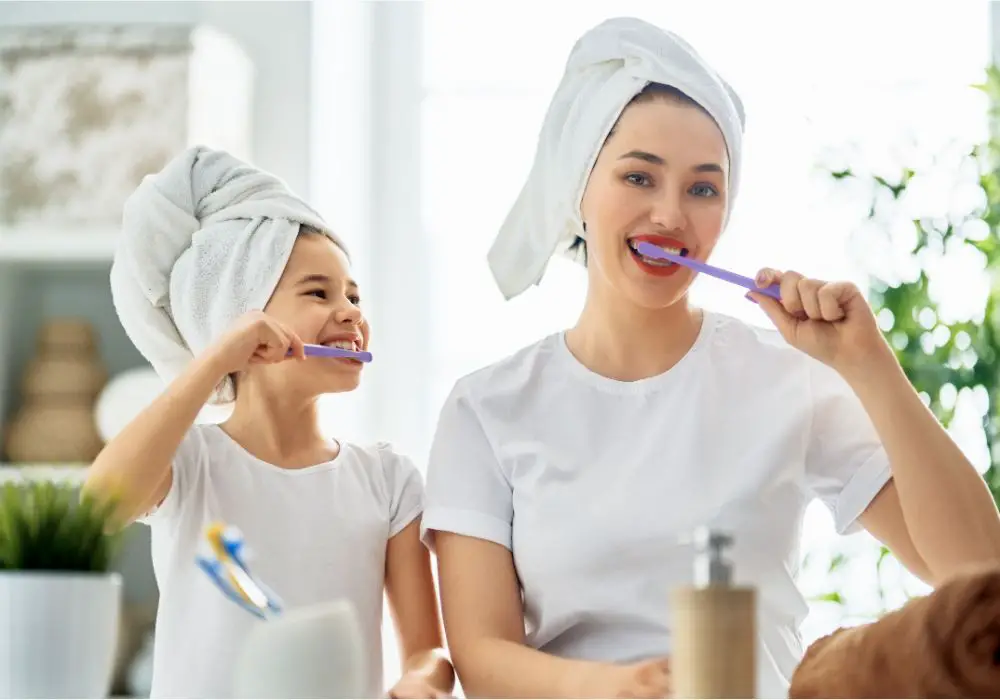
While we may take it for granted, brushing our teeth provides critical cleaning functions that are vital for maintaining good oral health and hygiene. Here are some of the key evidence-based ways brushing improves our oral health:
Removes Harmful Plaque
Plaque is a sticky film of bacteria that constantly forms on our teeth. If allowed to build up, plaque can irritate gums, cause tooth decay, and lead to periodontal disease. The mechanical friction of brushing sweeps away plaque from tooth surfaces and interdental spaces. This decreases inflammation and risk of oral infections.
Studies show regular brushing can reduce plaque buildup and gingivitis. One study found that proper twice daily brushing reduced plaque scores by 30% and gingivitis by 25% compared to infrequent brushers.
Fights Bad Breath
Halitosis or bad breath is most often caused by sulfur compounds produced by bacteria that inhabit the mouth. Tooth brushing helps scrape the tongue and teeth to dislodge bacteria that cause odor.
Clinical trials demonstrate that brushing the tongue can reduce bad breath by reducing volatile sulfur compounds by up to 70% for several hours.
Whitens Teeth
Food and drink can stain and discolor tooth enamel over time. Daily brushing helps scrub away staining from coffee, tea, wine, tobacco and other sources. This removes superficial stains and keeps teeth visibly whiter.
Studies have found that regular brushing can substantially reduce extrinsic staining of teeth compared to infrequent brushing.
Prevents Cavities and Tooth Decay
The fluoride in toothpaste combined with mechanical cleaning helps remineralize tooth enamel and prevent cavities caused by acid and bacteria. Thorough brushing after meals and before bed ensures fluoride is spread over all surfaces of the teeth for maximum preventive effects.
According to dental research, brushing teeth with a fluoride toothpaste reduces tooth decay in children and adults. Frequent brushers have fewer cavities than infrequent brushers.
As you can see, brushing our teeth provides critical protective effects that keep our mouth clean, teeth white, gums healthy and breath fresh. While essential for oral health, having a clean and fresh mouth through regular brushing also has a host of psychological benefits as well.
The Psychological Boost of Brushing Your Teeth
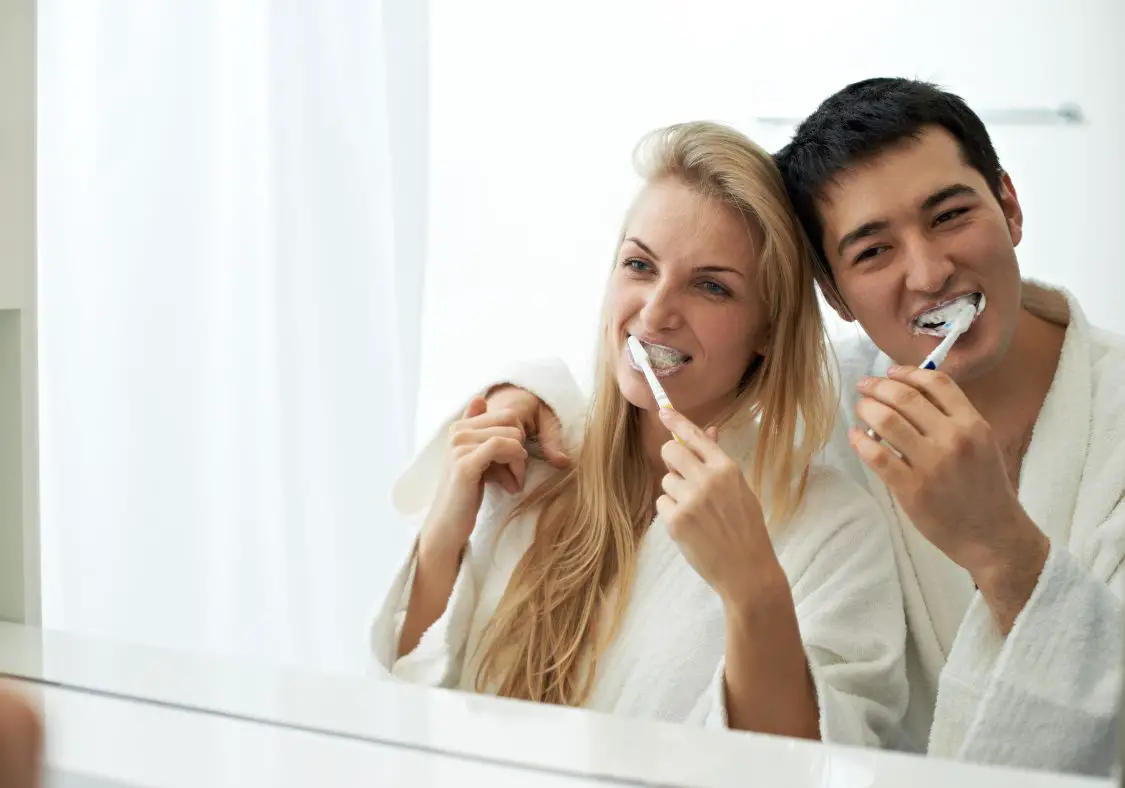
Beyond physical oral hygiene, starting and ending each day with tooth brushing provides structure along with mental and emotional lifting effects. Here are some of the key ways it boosts your mood and psychological well-being:
Promotes Self-Care
Making the time every morning and evening to brush your teeth demonstrates that you care about your health and are taking steps to care for yourself. This simple daily act of self-care provides emotional benefits by reinforcing your self-worth and boosting self-esteem.
Studies have found links between regular self-care activities like brushing and higher self-esteem along with lower rates of anxiety and depression. Brushing your teeth helps nurture yourself and establishes healthy self-care habits.
Reinforces Healthy Routines
Incorporating tooth brushing into your daily morning and evening routines helps establish structure and healthy habits in your life. Having set routines centered around self-care makes you feel more organized, purposeful and productive.
Psychology studies show that regular daily routines provide a sense of control over your life that reduces stress and boosts overall well-being. Brushing morning and night helps anchor your day.
Provides Mini Mental Break
The two minutes you spend gently brushing your teeth can provide a brief period of calm in your otherwise hectic day. This time allows you to be present with yourself and focus on your tooth brushing ritual without distraction from your worries.
Research finds even short self-care breaks as brief as 2 minutes of deep breathing provide mental respite that decreases stress, anxiety and frustration throughout your day.
Releases Positive Hormones
The physical sensations of brushing trigger your brain to release dopamine, serotonin and endorphins – hormones associated with pleasurable feelings like satisfaction, relaxation and positivity.
Neuropsychology studies using fMRI scans show that the gentle touch sensations of the bristles on your gums does stimulate release of feel-good neurotransmitters and hormones.
Freshens Breath for Social Confidence
Having clean and minty fresh breath after brushing makes you feel more confident in social, work and romantic interactions throughout the day. You feel ready to speak, smile and laugh without self-consciousness.
Surveys have found over 80% of Americans say having fresh breath gives them more confidence in face-to-face conversations with others. Brushing refreshes your breath.
Sets a Pre-Sleep Routine
Brushing right before bedtime helps establish a regular sleep routine. Having this relaxing ritual sends signals to your brain that it is time to unwind and get ready for rest. This makes it easier to fall asleep.
According to sleep researchers, regular bedtime routines with activities like brushing teeth help synchronize your circadian rhythm so your body prepares for sleep.
As evidenced, good oral hygiene habits provide both physical and emotional perks. To maximize these brightening benefits, optimal brushing habits are important.
When You Should Brush Your Teeth
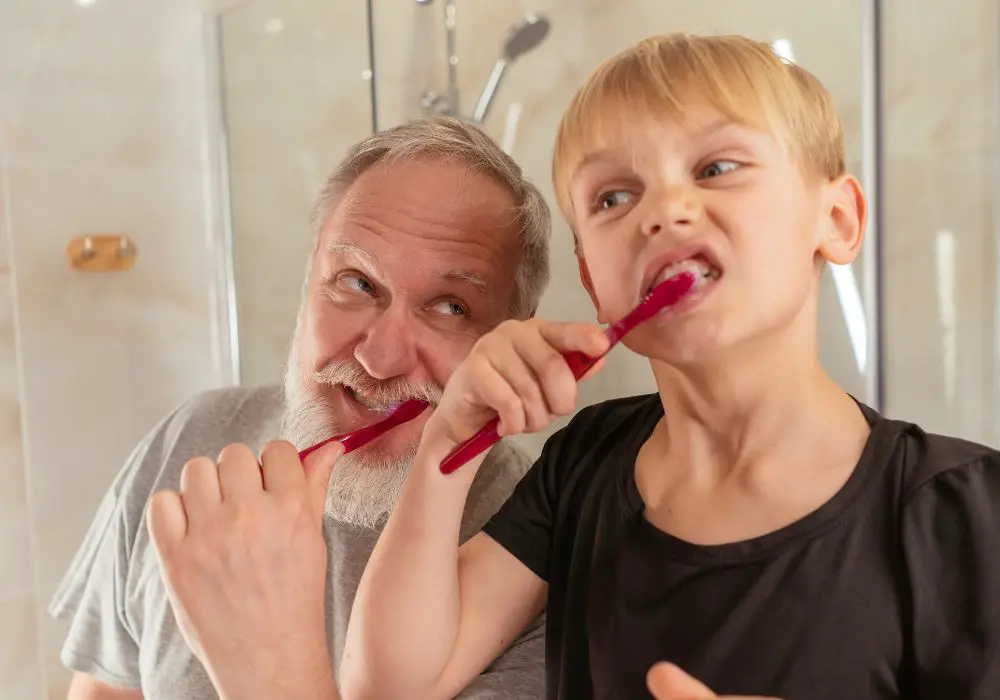
Brushing your teeth promotes oral health and provides a psychological lift. To fully realize these advantages, you need to brush at the right times.
Morning Brushing
- Brushing first thing after waking up helps clean away bacteria that accumulated in your mouth overnight and leaves you with fresher breath for the day ahead.
- It jumpstarts your morning routine on a positive note of self-care.
- Morning brushing has been shown to reduce oral bacteria levels by 30-50% within 30 minutes of brushing.
After Meals
- Brushing after breakfast, lunch and dinner prevents food particles from being left to decay in your mouth which promotes acidity and plaque bacteria growth.
- It effectively removes any sugars and acids introduced to your mouth from eating which lowers the caries-causing potential.
- Brushing post-meals only needs to be for one minute to clear away food debris and bacteria.
Evening Brushing
- Brushing before bed allows the protective effects of fluoride toothpaste to strengthen enamel and neutralize acid overnight while saliva flow is lowered.
- It reduces oral bacteria up to 60% over night when brushing right before sleep.
- Establishes a positive nighttime routine to transition your mindset from busy to rest.
In summary, critical brushing times are first thing in the morning, after all meals, and right before bedtime. This provides maximum physical and mental lift during your waking hours and while you sleep.
Optimizing Your Brushing Routine
Beyond when you brush your teeth, there are also techniques you can use to make your brushing routine more pleasant, thorough and energizing. Here are some evidence-based tips:
- Use a soft or extra-soft bristle toothbrush to be gentle on your gums if they are sensitive. Bristles that are too stiff can lead to recession.
- Choose an electric rotating toothbrush – studies show they reduce more plaque and gingivitis than manual brushing alone.
- Select a toothpaste with fluoride – fluoride makes enamel more resistant to decay and cavities.
- Use the proper brushing technique – gently use short back-and-forth strokes. Avoid aggressive scrubbing.
- Brush for 2 minutes – set a timer or use a Bluetooth brush that alerts you when time is up.
- Floss between teeth – brushing does not remove plaque between teeth where flossing is needed.
- Rinse mouth after eating – swish water around after meals if unable to brush to neutralize acid.
- Buy new toothbrush every 3 months – bristles become less effective after months of use.
- Schedule regular dental cleanings every 6 months – professional cleaning boosts your brushing.
Taking these steps to optimize your daily brushing routine will help you see brighter, healthier teeth in the mirror and ensure you reap all the feel-good mental effects as well.
Frequently Asked Questions
Here are answers to some common questions about how brushing makes you feel better:
How does brushing teeth reduce my stress levels?
The act of taking a brief self-care break to focus on brushing provides mental respite that lowers stress and anxiety. It also helps establish healthy routines which give a sense of control that is calming.
Should I brush more than twice a day?
Brushing more than twice daily generally provides no extra oral health benefits and can wear down enamel. Limiting to morning and evening allows saliva to remineralize enamel between brushes.
Does brushing whiten teeth?
Brushing alone has a mild whitening effect by removing surface stains. For greater whitening at home, use a toothpaste with baking soda, hydrogen peroxide or charcoal. See your dentist for professional whitening.
What is the best brushing technique?
Hold brush at 45° angle to your gums. Gently use short back-and-forth strokes around each tooth. Finish by brushing your tongue to freshen breath.
How long should I wait to eat after brushing?
Ideally, wait at least 30 minutes after brushing to eat or drink to allow the fluoride to fully absorb and strengthen enamel. If you must eat sooner, simply rinse your mouth.
Why does brushing make my gums bleed?
Gentle brushing should not cause bleeding. Bleeding indicates inflammation from gum disease. See your dentist to assess gum health. Switch to a soft brush and reduce scrubbing pressure.
Conclusion
While the cleansing of teeth and freshening of breath are the obvious effects of brushing, the benefits go much deeper. Starting your mornings and ending your evenings with a simple two minute teeth brushing ritual provides manifold physical and psychological boosts. Beyond cleaning your teeth to prevent decay, gum disease and bad breath, it fosters self-care, establishes structure, reduces stress and releases positive hormones that lift your mood. With proper technique and frequency, brushing can brighten both your smile and your state of mind.


